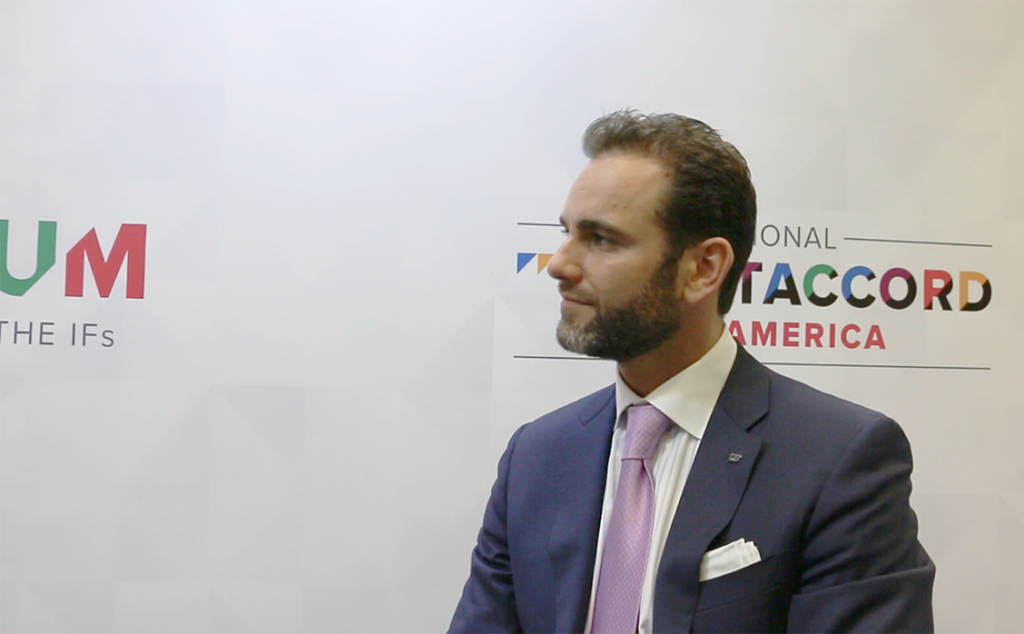Member Insights: Esports – Where Does It Fit In And How Can It Benefit The Sports World? Vlad Marinescu Talks To Jay Stuart
February 17, 2020
With iSportconnect’s Esports Masterclass taking place later this week, it’s the perfect time to read Jay Stuart’s interview with Vlad Marinescu, Vice-President of the International Esports Federation.
Vlad, also President of the United States Esports Federation, speaks about how Esports and established sports can work together and benefit each other, how federations are progressing and whether barriers exist between organisations and publishers.
JS: How do you think the dialogue is progressing between sports and the world of gaming, are we still in an early stage?
I think the general feeling around where the conversation is, it’s actually very varied. I say that because the conversation is very vast for FIFA, for example, that has their game that is doing very well both in sales and in world championships and Esports events where pro football teams have Esports teams participating in that.
Read More: iSportconnect Esports Masterclass – 20th February
Then we have federations that their sport is just too complex for today’s technology to be able to digitise it. It’s a very broad question in the sense that some are very advanced, others are nowhere. I think the final and most important aspect is to have the conversation, have the discussion because both can learn from each other. Sport can learn from it and Esports definitely needs sport.
When you say Esports, people often get confused with gaming. How would you explain where Esports fits into the sports world?
There’s a very broad definition for what Esports means. There are two ideologies. The first is that Esports refers to elite, high-level team performance in competitions. In my opinion Esports means responsible gaming. When I say responsible gaming I mean gaming with an educational background, to prepare the gamers in order to enjoy and game responsibly.
That’s what I think Esports is, because we’re not speaking about only the crème de la crème or the 1% which is competing at the highest level creating monetary value and media values around the world, we’re speaking about an activity that’s taking place. It’s kind of like saying if I’m swimming in the ocean I’m not swimming I’m paddling, but as long as I’m doing that activity I need to know the rules of that activity and do it in a responsible way. That’s what Esports means to me, responsible participation.
Now there are sports clubs and organisations using Esports as a tool to encourage young people to play sport, do you think that’s one of the ways sport can be beneficial?
This is the most important way that they can benefit from each other. Esports can be the best motivational tool thanks to parents. I think the rewards system for being allowed to play already exists in the youth today. We can use it to our advantage in order to reward gaming for physical activity. I think that Esports athletes can be healthier, play better, enjoy their lives better if they have all the components that sports has to offer in terms of socialisation, physical health and mental health while at the same time enjoying having a social network online and everything gaming has to offer.
Some of the biggest and most popular games are owned by private organisations which have the potential to control the way those games are developed. Some sports organisations believe there is a barrier because of this?
I don’t think it’s any barrier, I think the publishers do a fantastic job of creating the most modern and realistic and immersive gaming experience for the benefit of the people playing them, and of course for financial profit because they’re companies, but at the same time they understand the social responsibility, they care about their consumers, their customers.
We’re living in an era where being healthy is more and more important, I think that publishers are the key vital component in doing the social responsibility activities with traditional sports to instill in the players a physical dependency as well as a social one, as well as nutrition.
So I don’t think it’s in any way a barrier regarding the publishers, I think they’re doing a great job and they need help from the International Esports Federation, from national Esports federations in order to activate the communities and do those goodwill social responsibility projects.
Tell us about where you are in terms of the development of federations side of things?
The target of the US federation is to be open-minded and work with anyone, we don’t have a closed door policy with any of the stakeholders. So as USEF, our sole direction of activity is in protecting athletes, creating educational programmes for them, creating the qualification circuit for the world championships, and at the same time doing all kinds of other activities with the stakeholders to unite them and make them work together for our general assemblies.
As for the international federation, it applied to SportAccord [now the Global Association of International Sports Federations] in 2013 for the first time. In 2013 it already fulfilled all of the criteria for being a member of the association, except for the number of national member federations approved by NOCs or highest sporting authorities.
Today there are 56 members, of which more than 30 are recognised by the administrators of sport. We are the oldest, biggest and most active international Esports federation for Esports. There are some rival organisations that are popping up every single day because it’s a broad environment. But with the partnership of our national federations that are fantastic at their jobs for promoting Esports and working with publishers, we’re able to bring a value to the table and really unite everybody and encourage positive exchange between the stakeholders for the sustainable development model of Esports.


